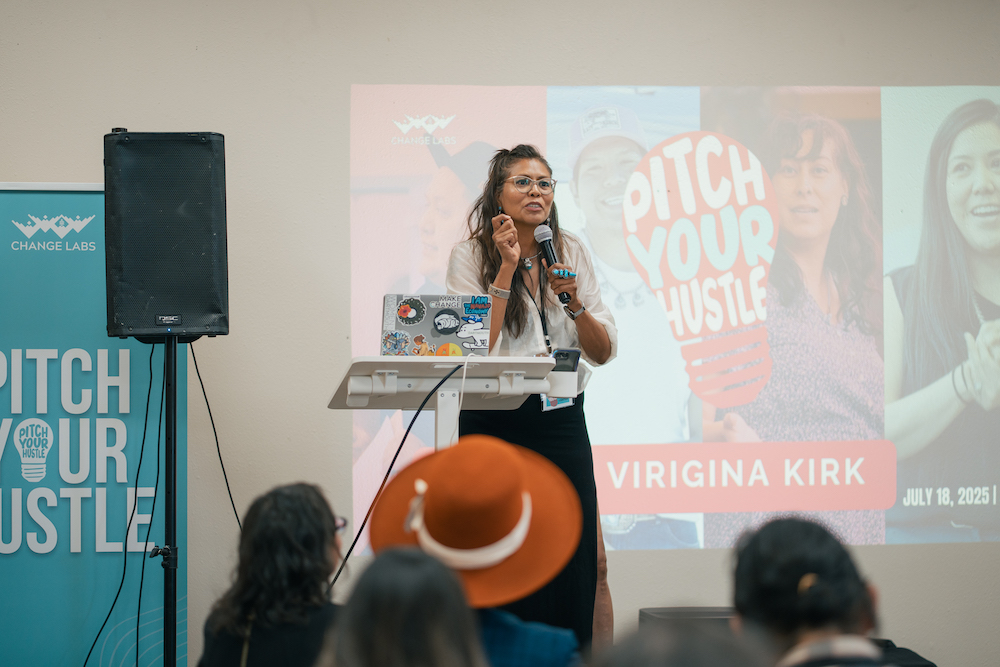
- Details
- By Brian Edwards
- Indigenous Entrepreneurs
One Navajo entrepreneur with helicopters wants to build fuel stations across the reservation. Another, a metal fabricator in Phoenix, struggles to secure even basic credit. These contrasting examples illustrate what Heather Fleming calls a persistent challenge: Native businesses that have outgrown microloans but remain too small for traditional bank financing.
Now Fleming, CEO of Change Labs, plans to test whether a community-controlled equity fund can fill that gap. Wells Fargo has committed $900,000 in grant funding to help Change Labs design and seed a $1 million pilot equity fund set to launch in 2026. The fund is expected to make about eight investments ranging from $50,000 to $250,000, targeting enterprises with growth potential that lack access to flexible capital.
“Entrepreneurs enrolled in our program are very uncomfortable with the idea of a non-Native person or a non-Native firm owning a portion of their business,” Fleming told Tribal Business News. “So we want to structure this fund as almost like a partnership with Change Labs, which is a fellow community-based organization.”
The fund will test what Fleming calls “regenerative” investment principles that prioritize social, cultural and environmental returns alongside financial outcomes. Investments will include wraparound support services, connecting entrepreneurs with Native graphic designers, accountants and other professionals in Change Labs' network.
The grant comes through Wells Fargo's $20 million “Open for Business Growth” program, which extends the bank's earlier $120 million Open for Business Fund. That initiative has reached more than 336,000 businesses and supported nearly 469,000 jobs nationwide, according to the company
Gustavo Perez Eugui, Wells Fargo's vice president of philanthropy and community impact, said the bank saw Change Labs as a trusted partner with a record of innovation. The nonprofit previously piloted a kinship lending program on Navajo that provided character-based loans when collateral was scarce.
Building on that lending experience, Change Labs is now turning its attention to equity—an even scarcer form of capital in rural Native communities.
“Equity capital is unavailable to rural-based businesses,” Perez said. “We wanted to support Change Labs in meeting that community need … and hopefully to show that these equity investments can be made in rural-based businesses”
The project also reflects lessons from a 2021 Change Labs roundtable, where two-thirds of participants said they preferred equity over loans—provided the investors were Native-owned or aligned with community goals.
Change Labs originally considered using Navajo Nation's allocation from the federal State Small Business Credit Initiative to launch a venture fund, but the tribe chose other priorities. Fleming said Wells Fargo stepped in with grant funding that covers both operational design and seed money for first-round investments.
The mechanics remain under development. Change Labs will determine deal structures, selection criteria and fund management during 2026's design phase, with investments hopefully beginning by the third quarter. The organization is considering whether to manage investments internally or partner with an experienced fund manager, Fleming said.
The nonprofit is now working to raise additional funds from foundations, mission-driven investors, and angel investors. Fleming said interest is emerging from groups that favor patient capital and Indigenous-led initiatives.
Board Xhair Brett Isaac, founder of Navajo Power, has also influenced the fund's direction. Isaac is one of the few Navajo entrepreneurs to secure Series A and B venture capital, and his experience has shaped Change Labs' strategy, Fleming said.
Holly Patterson, a strategic capital strategist at Change Labs who will help design the fund, said the initiative represents both business opportunity and community investment. “This fund is a bold experiment, and a necessary one,” Patterson said in a statement. “It's about investing in our people, our ideas, and our future not just with money, but with trust.”
If the pilot succeeds, Fleming said it could eventually be scaled or replicated elsewhere. “If we are able to figure out how this works on Navajo, then perhaps, in theory, any tribe could pick it up and replicate it,” she said.
